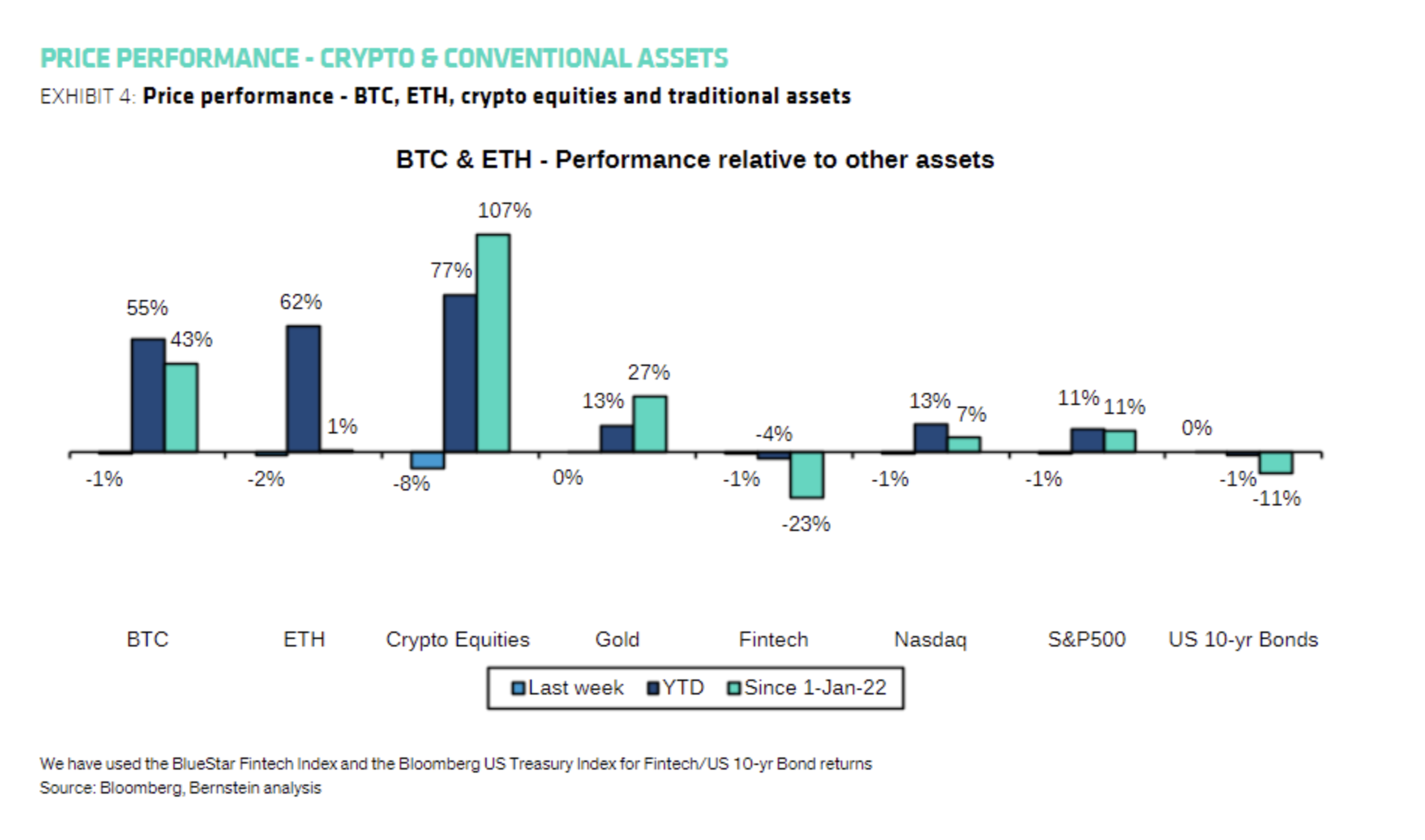The recent approval of spot Ethereum (ETH) exchange-traded funds (ETFs) by the U.S. Securities and Exchange Commission (SEC) has raised questions about the factors influencing this decision. Analysts from the research and brokerage firm Bernstein provided insights into the dynamics behind the SEC’s move.
SEC Had to Approve Spot Ethereum ETFs
Initially, speculation suggested that political pressure from Democrats, aiming to secure undecided voters ahead of the November U.S. Presidential elections, drove the SEC’s sudden shift to approve spot Ethereum ETFs. However, Bernstein analysts believe this narrative lost credibility after President Joe Biden vetoed the proposal to repeal the SEC’s Staff Accounting Bulletin (SAB) No. 121.
According to Bernstein’s Gautam Chhugani and Mahika Sapra, the SEC found itself in a challenging position regarding Ethereum ETFs due to similarities with spot Bitcoin ETFs. These similarities include correlations with spot and futures markets and the presence of active Ethereum futures products on the Chicago Mercantile Exchange, indicating ETH’s commodity status.
Analysts suggested that the SEC likely adopted a pragmatic approach to avoid potential lawsuits and a legal battle, indicating a more nuanced decision-making process beyond political influence.
Despite the unexpected approval, Bernstein acknowledged the significance of the SEC’s decision for market participants, highlighting its positive implications for the industry.
Bernstein’s discussions with spot Ethereum ETF applicants indicated that market expectations leaned more towards a rejection, especially considering the SEC staff’s silence up to the decision date. Therefore, the SEC’s approval of the ETFs came as a surprise. However, ETF issuers were asked to resubmit necessary documents just days before the approval, indicating a rapid change in the situation.
Expected to Lag Behind Spot Bitcoin ETFs
While spot Ethereum ETF inflows are expected to be lower than those of spot Bitcoin ETFs, Bernstein anticipates pent-up demand from similar market participants. This expectation points to potential positive price movement for ETH leading up to the ETF launch.

The SEC’s official approval on May 23 included applications from various well-known organizations such as VanEck, BlackRock, and Fidelity. These approved ETF issuers are now waiting to finalize their registration statements, a process that could take from a few weeks to months.

 Türkçe
Türkçe Español
Español










